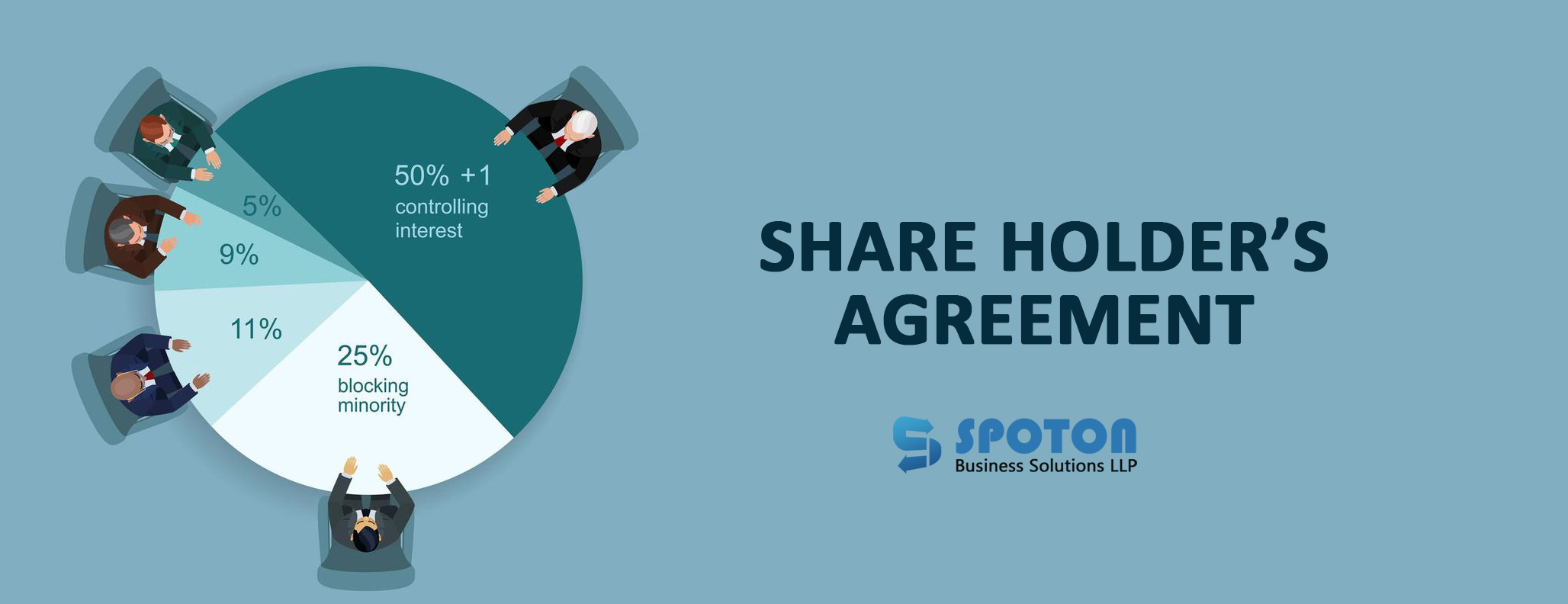Legal Documentation

Spoton Business Solution has a dedicated team of company secretarial, legal professionals and Chartered Accountants who possess extensive experience in various corporate laws and commercial / legal documentation. Our team is highly business oriented in approach and has experience across sectors and the acumen to provide complete solutions for all legal and commercial documentation matters.
All business must have contracts in place for every deal they enter in to both internally and externally. SPOTON Law and Commercial Documentation team provides the following Services :-
• Partnership Deed
• Shareholders’ Agreement
• Investment Agreement
• Joint Venture Agreement
• Business Transfer Agreement
• Non Disclosure Agreement
• Agency Agreements
• Franchise Agreement
• Power of Attorney
• Affidavits/Undertakings
• Employment Agreement
• Service Agreement
• Consultancy Agreement
Business agreement

Generally, business law refers to the rules that govern commercial interactions between persons or other certified entities. These rules can come from legislation, common law rulings or agreements made through international conventions or treaties. Most business laws either regulate entity behavior (for example, bankruptcy and taxation) or regulate transactions between different entities.
But one of the unique things about business interactions is the importance and prevalence of contractual agreements between commercial entities. This is often known as a business to business commerce agreement or more simply, a business agreement. General business agreements can control any number of commercial interactions such as purchasing goods from a manufacturer, purchasing goods produced by others or purchasing services from another entity.
What are Some Common Business Agreements?
Here are the most common types of business agreements:
1. Ownership agreements Can also be called partnership, founder, operating, or shareholders agreements depending on what type of entity is being formed. They detail the rights and responsibilities of owners and partners as well as basic company operation details and what happens if an owner leaves or the entity is dissolved.
2. Supplier agreements These detail the terms of the relationship between one entity and another, usually the price and amount of goods. They function to prevent unwanted situations with suppliers as withdrawal or failure to provide.
3. Independent contractor agreements A business may need to outsource to independent contractors, which can range from CPAs and web developers to temporary employees to perform company services. Because independent workers are not full-time employees, a written agreement is important to make sure that no complications arise in the future.
4. Non-disclosure agreements Used by entities to ensure that employees or even contractors know their role and what information they can and cannot share during or after their time with the company.
While these are some of the most common legal agreements you might see in a business law context, they can cover a nearly endless amount of topics as long as the elements are present and not prohibited by law. And while some contracts may not NEED to be in writing, it is ALWAYS a better idea to do so.
What is the Legal Difference Between an Agreement and a Contract ??
The terms “agreement” and “contract” are often used interchangeably, but legally speaking they are two different things. An agreement is an understanding or arrangement between two or more parties. A contract is a specific agreement with terms and conditions that are enforceable in court. A business agreement is at its core an exchange of promises and can be either oral or written.
For example: the manager of Company A goes to the manager of Company B and asks them to supply a certain number of parts necessary for their product. Manager B agrees and they shake on it. This is an agreement, but not a contract. If the two managers sit down and write out that A will buy $1,000 of parts from B and both sign it, this is a contract. A contract has the weight of law behind it, but the agreement may not.
Do I Need an Attorney If I Need to Make a Business Agreement ?
Business law matters often have significant resources on the line, so making sure that any transaction or other issue is properly taken care of is important. If you are looking to make a business agreement with another entity, be sure to consult an attorney experienced in various aspects of business law matters.
An attorney in your area can assist you with drafting, reviewing, and analyzing a contract to make sure it meets all legal requirements. If a disagreement or dispute arises, your attorney can provide you with legal representation in court to help protect your business interests.
Joint Venture Agreement

A Joint Venture Agreement, also known as a co-venture agreement, is used when two or more business entities or individuals enter into a temporary business relationship (joint venture) for the purpose of achieving a mutual goal. A Joint Venture Agreement sets out the terms and obligations of the members and the joint venture.
What types of joint ventures are there ?
Contractual : A contractual joint venture is when two or more parties agree to collaborate on a business project, and sign an agreement that outlines the terms under which they will work together. The members continue to operate a separate business with a shared goal but with no pooling of profits or losses. Each party keeps their accounting records separate and there are no registration requirements.
General Partnership : A joint venture in the form of a general partnership is when the partners agree to share in the profits and losses from the project and each party is jointly and severally liable for the obligations of the partnership. This type of joint venture is mainly used for real estate ventures and not for business endeavors related to research and/or product development.
What is included in a Joint Venture Agreement ?
The following is included in a Joint Venture Agreement:
1. Business location
2. The type of joint venture
3. Venture details, such as its name, address, purpose, etc
4. Start and end date of the joint venture
5. Venture members and their capital contributions
6. Member duties and obligations
7. Meeting and voting details
8. Management, dissolution, and assignment of interest details
9. Non-compete, confidentiality, and dispute resolution clauses
What is the difference between a Joint Venture and a partnership ?
A joint venture is typically made up of two or more individuals or businesses joining together to complete a project that is limited in scope and time. Once the project is completed, or by a fixed date in the future, the joint venture ends.
A partnership consists of two or more people who go into business together with a view to making a shared profit. A partnership is governed by a Partnership Agreement and unlike a joint venture, it typically continues for as long as the partners want to be in business.
What are the advantages and disadvantages of a joint venture ?
Collaborating with another business can offer the following benefits :
More financial or technical resources
Greater expertise and skills
Access to new markets and distribution channels
Larger capacity
Partner on new and existing products/services
Diversification
Flexibility and control over the terms of the relationship
Partnering with another business does offer its perks, but there are also some possible risks as well, including :
Imbalance in resources, expertise, or investment
Different management or leadership styles, or different workplace cultures
Disputes, if the scope of the venture is not framed correctly (as the partners in a joint venture are often competitors)
Shareholders’ agreement

A shareholders’ agreement is, as you might expect, an agreement between the shareholders of a company. It can be between all or, in some cases, only some of the shareholders (like, for instance, the holders of a particular class of share). Its purpose is to protect the shareholders’ investment in the company, to establish a fair relationship between the shareholders and govern how the company is run.
The agreement will :
set out the shareholders’ rights and obligations;
regulate the sale of shares in the company;
describe how the company is going to be run;
provide an element of protection for minority shareholders and the company; and
define how important decisions are to be made.
The agreement will contain specific, important and practical rules relating to the company and the relationship between the shareholders. This can be beneficial both to minority and majority shareholders.
What should be included in a shareholders agreement ?
This will depend on the the number of shareholders and their respective shareholdings. The key provisions, however, that should be considered for inclusion are those relating to :
1. Issuing shares and transferring shares – including provisions to prevent unwanted third parties acquiring shares, what happens to shares on the death of a shareholder and how a shareholder can sell shares.
2. Including any tag along or drag along provisions.
3. Providing some protection to holders of less than 50% of the shares – including requiring certain decisions to be agreed by all shareholders.
4. Paying dividends.
5. Running the company – including appointing, removing and paying directors, frequency of board meetings, deciding on the company’s business, making large capital outlays, providing management information to shareholders, banking arrangements and financing the company.
6. Competition restrictions.
7. Dispute resolution procedures.
